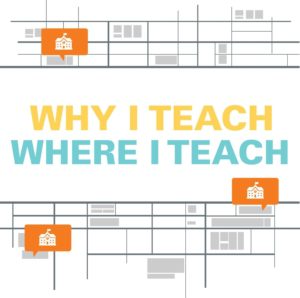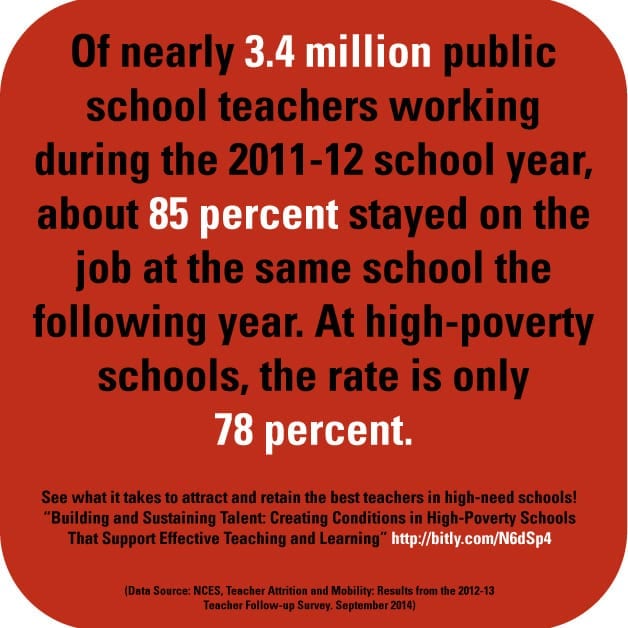Why I Teach Where I Teach: To Disrupt the Pedagogy of Poverty
Andrew Biros is a teacher and head of instructional technology at Kensington Creative & Performing Arts High School in Philadelphia, where 95 percent of students are economically disadvantaged, 16 percent are English-learners, and 21 percent qualify for special education services. Andrew is a Leonore Annenberg Teaching Fellow with the Woodrow Wilson National Fellowship Foundation.
As Americans, we pride ourselves on the notion that anyone is capable of climbing the ladder of success. Rarely acknowledged, however, is the reality that the types of learning opportunities some young people receive are drastically different from those of others.
With this in mind, my fellow teachers and I embarked on a mission to shift the culture of learning this year at our school. Focusing on reading, writing, and research, our neighborhood high school adopted a teacher-designed 1:1 Chromebook model. This initiative not only provides our students with greater resources for inquiry, but also helps build basic tech literacy — email, calendar, shared documents — that is required in the modern economy. Gone for our students are the days of worksheets and blindly copying notes on the board; they have been replaced with a greater array of differentiated learning opportunities, where students are asked to identify content-specific problems and craft unique solutions.
Not only are more students completing written assignments, but the quality, breadth, and depth of student writing has been astounding. Student agency has been a driving force in this redesign as well. Whenever a student encounters a word, person, or concept with which they are unfamiliar, instead of giving up or waiting for me to explain, I simply encourage them with a smile, “Oh, that’s a good question. Why don’t you look it up?” This simple facet affords individualized inquiry and instills in students the ability to confidently explore the unfamiliar.
Simply because my students are born into poverty does not mean they are undeserving or incapable of succeeding in the type of schooling afforded mostly for the affluent. I teach where I teach, because my students deserve the type of education that prepares them to ask questions, problem-solve, and empathize with others in order to succeed in our knowledge-based economy.
More resources from Ed Trust
Teacher turnover is often greater in high-poverty schools than more affluent ones, but with the right structures and supports, administrators can reduce that churn. Read Building and Sustaining Talent: Creating Conditions in High-Poverty Schools That Support Effective Teaching and Learning for more.
 This post is a part of an ongoing series, called “Why I Teach Where I Teach,” which asks educators in high-need schools to share what has attracted (and kept) them in the challenging environments they’re in. They share important stories and experiences that should remind us all of the power of strong school leadership, a network of supportive colleagues, and the genuine opportunity to have a say in schoolwide decisions. Listen up! They’re teaching us.
This post is a part of an ongoing series, called “Why I Teach Where I Teach,” which asks educators in high-need schools to share what has attracted (and kept) them in the challenging environments they’re in. They share important stories and experiences that should remind us all of the power of strong school leadership, a network of supportive colleagues, and the genuine opportunity to have a say in schoolwide decisions. Listen up! They’re teaching us.













